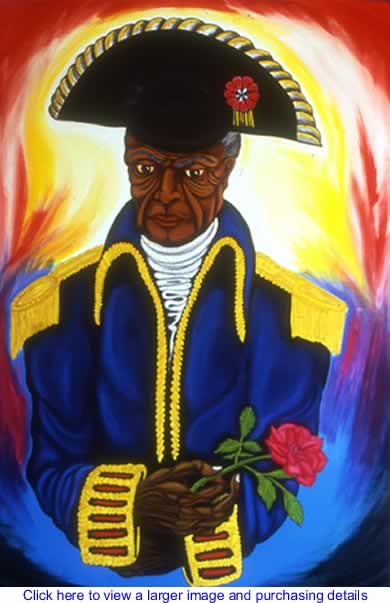history
Malaysia: Two-party system – and a ‘third force’?

By Jeyakumar Devaraj
February 11, 2010 -- Aliran Monthly -- Malaysia has only known one ruling coalition in the past 52 years since independence. But the result of the March 2008 election has led to rising hope among many Malaysians that an enormous change might be around the corner – a two-party system under which the people are free to choose between two coalitions, which are both capable of governing the country.
The purpose of this paper is to locate the institution of a two-coalition system against a wider historical perspective.
The concept that every person has an equal right to select the government irrespective of his or her social status, wealth, education, religious affiliation or beliefs is a revolutionary idea. And it is relatively new.
Haiti: A history of struggle and exploitation
By Amanda Zivcic
January 23, 2010 -- Since the earthquake struck Haiti on January 12, 2010, there has been a global outpouring of support. Many people, horrified by the scenes of sheer devastation, the astronomical death toll and the struggle of survivors to gain access to medicines, food and shelter, are left wondering: why so many?
The oft-repeated tag of Haiti being “the poorest nation in the Western hemisphere” is true but this did not just happen. It is the result of a history of colonialism, slavery, imperialism, foreign military intervention, foreign-imposed dictatorships and unjust debt.
The Caribbean nation’s indigenous people were all but wiped out by 1520 due to the disease and exploitation that came with the arrival of the Spaniards in 1492. After France and Spain divided the island of Hispaniola into Haiti and the Dominican Republic, French and Spanish settlers arrived.
Peter Hallward: Securing disaster in Haiti

By Peter Hallward
January 21, 2010 -- Haitianalysis.com -- Nine days after the devastating earthquake that struck Haiti on January 12, 2010, it's now clear that the initial phase of the US-led relief operation has conformed to the three fundamental tendencies that have shaped the more general course of the island's recent history.[1] It has adopted military priorities and strategies. It has sidelined Haiti's own leaders and government, and ignored the needs of the majority of its people. And it has proceeded in ways that reinforce the already harrowing gap between rich and poor. All three tendencies aren't just connected, they are mutually reinforcing. These same tendencies will continue to govern the imminent reconstruction effort as well, unless determined political action is taken to counteract them.
I
Haiti's `odious debt' must be completely and unconditionally cancelled!
By Eric Toussaint and Sophie Perchellet,[1]Translated by Francesca Denley in collaboration with
Marie Lagatta
Haiti was partially destroyed by an earthquake measuring 7 on the Richter scale. We have all shed tears and the media, as it bombards us with apocalyptic images, reports on generous financial pledges various states have made. Haiti needs to be rebuilt. But most mainstream comments fail to look beyond the terrible earthquake. While we are told that Haiti is one of the poorest countries in the world, no explanations of why that is so are provided. We are led to believe that poverty just happened, that it is a situation beyond remedy, that Haiti is an "accursed land”.
Martin Luther King Jr in the age of Obama: Why we can't wait

By Billy Wharton
January 17, 2010 -- Albert Boutwell's election as Birmingham, Alabama, mayor in 1963 might have signaled the end of the modern civil rights movement. As a moderate Democrat, Boutwell promised to temper the harsh repression unleashed by the city’s notorious chief of police and his mayoral opponent Eugene “Bull” Connor. Mainstream leaders of the black community were told to wait it out –- let the storm pass and incremental changes could begin. Dr Martin Luther King Jr. refused to wait. Instead, he launched Plan “C” (confrontation), a large-scale protest campaign that broke the back of Southern segregation.
Fidel Castro: The lesson of Haiti

By Fidel Castro Ruz
January 14, 2010 -- Two days ago [January 12], at almost six o’clock in the evening Cuban time and when, given its geographical location, night had already fallen in Haiti, television stations began to broadcast the news that a violent earthquake -– measuring 7.3 on the Richter scale -– had severely struck Port-au-Prince. The seismic phenomenon originated from a tectonic fault located in the sea just 15 kilometres from the Haitian capital, a city where 80% of the population inhabit fragile homes built of adobe and mud.
The news continued almost without interruption for hours. There was no footage, but it was confirmed that many public buildings, hospitals, schools and more solidly constructed facilities were reported collapsed. I have read that an earthquake of the magnitude of 7.3 is equivalent to the energy released by an explosion of 400,000 tons of TNT.
Tragic descriptions were transmitted. Wounded people in the streets were crying out for medical help, surrounded by ruins under which their relatives were buried. No one, however, was able to broadcast a single image for several hours.
Daniel Bensaïd: militant, intellectual, friend

By François Sabado
International Viewpoint -- Daniel Bensaïd left us today, Tuesday, January 12, 2010. Born in 1946 he gave his life to the cause of defending revolutionary Marxist ideas right to the end. He was one of the founders of the Jeunesse Communiste Révolutionnaire (JCR -- Revolutionary Communist Youth) and the Ligue Communiste Révolutionnaire (LCR -- Revolutionary Communist League, French section of the Fourth International).
A leader of the May '68 movement, he was one of those people with a very sure feeling for political initiative. He had been one of the leaders of the 22nd March Movement. Grasping the dynamic of social movements, in particular the link between the student movement and workers’ general strike, he was also one of those who understood the necessity of building a political organisation, of accumulating the forces for building a revolutionary party.
The quality of Daniel’s intelligence was to combine theory and practice, intuition and political understanding, ideas and organisation. He could, at the same time, lead a stewarding force and write a theoretical text.
Free pamphlet to download: `Cuba -- How the workers and peasants made the revolution'

On January 1, 1959, the hated US-backed Batista dictatorship in Cuba was overthro
Britain: `Morning Star' celebrates 80th year of publication

By Mick Hall
January 6, 2010 -- Organized Rage -- Despite all its shortcomings and some might say murky history, the Morning Star is about to celebrate its 80th year of publication. Which in today's economic climate would be an achievement for any newspaper, but this is especially so for a radical left of centre daily and must surely be something to celebrate.
That survived the collapse of one of its main benefactors the Soviet Union was a major feat in itself and has had unforeseen, yet beneficial consequences. Having had the dead weight of Stalinism lifted from its editorial policy has proved liberating for the paper; and during the recent period it has moved beyond being a mouthpiece for what had become a form of sclerotic international communism, with football results thrown in, and is gradually becoming the voice the UK left has so desperately needed.


